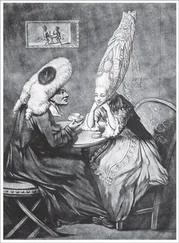Bill Bryson - Notes from a small Island
Здесь есть возможность читать онлайн «Bill Bryson - Notes from a small Island» весь текст электронной книги совершенно бесплатно (целиком полную версию без сокращений). В некоторых случаях можно слушать аудио, скачать через торрент в формате fb2 и присутствует краткое содержание. Жанр: Современная проза, на английском языке. Описание произведения, (предисловие) а так же отзывы посетителей доступны на портале библиотеки ЛибКат.
- Название:Notes from a small Island
- Автор:
- Жанр:
- Год:неизвестен
- ISBN:нет данных
- Рейтинг книги:4 / 5. Голосов: 2
-
Избранное:Добавить в избранное
- Отзывы:
-
Ваша оценка:
- 80
- 1
- 2
- 3
- 4
- 5
Notes from a small Island: краткое содержание, описание и аннотация
Предлагаем к чтению аннотацию, описание, краткое содержание или предисловие (зависит от того, что написал сам автор книги «Notes from a small Island»). Если вы не нашли необходимую информацию о книге — напишите в комментариях, мы постараемся отыскать её.
Notes from a small Island — читать онлайн бесплатно полную книгу (весь текст) целиком
Ниже представлен текст книги, разбитый по страницам. Система сохранения места последней прочитанной страницы, позволяет с удобством читать онлайн бесплатно книгу «Notes from a small Island», без необходимости каждый раз заново искать на чём Вы остановились. Поставьте закладку, и сможете в любой момент перейти на страницу, на которой закончили чтение.
Интервал:
Закладка:
At least it gave me a chance to see the littleknown but intriguing Potato Marketing Board building at Cowley, into whose car park I pulled to turn around when I realized I was utterly lost. The building was a substantial 1960s edifice, four storeys high and largeenough, I would have guessed, to accommodate 400 or 500 workers. I got out to wipe the windscreen with some pages torn from an owner's manual I found in the glove box, but was soon staring at the arresting grandeur of the Potato Marketing Board HQ. The scale of it was quite astounding. How many people does it take to market potatoes, for goodness' sake? There must be doors in there marked 'Department of King Edwards' and 'Unusual Toppings Division', people in white shirts sitting around long tables while some guy with a flip chart is telling them about exciting plans for the autumn campaign for Pentland Squires. What a strange circumscribed universe they must live in. Imagine devoting the whole of your working life to edible tubers, losing sleep because somebody else was made No. 2 in Crisps and Reconstituteds or because the Maris Piper graph is in a tailspin. Imagine their cocktail parties. It doesn't bear thinking about.
I returned to the car and spent some time experimenting with the controls and thinking how much I hated these things. Some people are made for cars and some people aren't. It's as simple as that. I hate driving cars and I hate thinking about cars and I hate talking about cars. I especially hate it when you get a new car and go in the pub because somebody will always start quizzing you about it, which I dread because I don't even understand the questions.
'So you've got a new car, huh?' they'll say. 'How's it drive?'
You see, I'm lost already. 'Well, like a car. Why, have you never been in one?'
And then they start peppering you with questions. 'What sort of mileage you get? How many litres? What's the torque? Got twin overhead cams or doublebarrelled alternatorcumcarburettorwith a full pike and a doubletwist dismount?' I can't for the life of me understand why anyone would want to know all this shit about a machine. You don't take that kind of interest in anything else. I always want to say: 'Hey, I hear you've got a new refrigerator. How many gallons of freon does that baby hold? What's its BTU rating? How's it cool?'
This car had the usual array of switches and toggles, each illustrated with a symbol designed to confound. Really now, what is one to make of a switch labelled 101? How can anyone be expected to work out that a rectangle that looks like a television set with poor reception indicates the rear window heater? In the middle of this dashboard were two circular dials of equal size. One clearly indicated speed, but the other totally mystified me. It had two pointers on it, one of which advanced very slowly and the other of which didn't appear to move at all. I looked at it for ages before it finally dawned on me this is true that it was a clock.
By the time I found my way to Woodstock, ten miles north of Oxford, I was quite exhausted and very happy to bump to a halt against a kerb and abandon the thing for a few hours. I must say I like Woodstock very much. I'm told that it can be something of a nightmare in summer, but I've only seen it out of season and it has always been splendid. Its Georgian houses have a confident, almost regal air, its pubs are numerous and snug, its shops interesting and varied and their frontages uniformly unspoiled. There isn't a piece of brass in town that doesn't gleam. The Post Office had an oldfashioned blackandsilver sign, far more elegant and classy than that redandyellow logo they use now, and even Barclays Bank had somehow managed to resist the urge to cover the front of its building with lots of aquablue plastic.
The High Street was busy with shunting Volvos and tweedy shoppers with raffia baskets slung over their arms. I ambled along the shops, pausing now and again to peer in windows, and past the proud Georgian houses before coming abruptly to the entrance to Blenheim Palace and Park. Beneath an imposing ornamental arch there was a ticket booth and a sign saying that admission for an adult was .6.90, though closer inspection revealed that this included entrance to the palace tour, butterfly house, miniature train, adventure playground and a whole cornucopia of other cultural diversions. Lower down, the sign noted that admission to the grounds alone was 90p. I may be easily fooled, but nobody takes 90p from me without good reason. I had a trusty Ordnance Survey map and could see that this was a public right of way, so I strode through the gate with a sneer and my hand on my wallet, and the man in the ticket booth wisely decided not to tamper with me.
The transformation when you pass through the gate is both immediate and stunning. On one side you are in a busy village, and on the other you are suddenly thrust into a rural Arcadia of the sort that seems incomplete without a couple of Gainsborough figures ambling by. Before me spread 2,000 acres of carefully composed landscape stout chestnuts and graceful sycamores, billiardtable lawns, an ornamental lake bisected by an imposing bridge, and in the centre of it all the monumental baroque pile of Blenheim Palace. It was very fine.
I followed the curving road through the grounds, past the palaceand busy visitors' car park, and on around the periphery of the Pleasure Gardens. I would come back to check this out, but at the moment I was headed across the park and to an exit on the other side on the Bladon road. Bladon is a nondescript little place trembling under the weight of passing goods traffic, but in its centre is the churchyard where Winston Churchill lies buried. It had begun to rain and as it was a bit of a hike up a busy road, I began to wonder if this was worth the effort, but when I reached it I was glad I had. The churchyard was lovely and secluded and Churchill's grave so modest that it took some finding among the tumbling gravestones. I was the only visitor. Churchill and Clemmie shared a simple and seemingly forgotten plot, which I found both surprisingly touching and impressive. Coming as I do from a country where even the most obscure and worthless of presidents get a huge memorial library when they pop their clogs even Herbert Hoover, way out in Iowa, has a place that looks like the headquarters of the World Trade Organization it was remarkable to think that Britain's greatest twentiethcentury statesman was commemorated with nothing more than a modest statue in Parliament Square and this simple grave. I was impressed by this commendable show of restraint.
I retraced my steps to Blenheim and had a nose around the Pleasure Gardens and other outdoor attractions. 'Pleasure Gardens' apparently was short for 'It's a Pleasure to Take Your Money', since it seemed largely dedicated to helping visitors to part with further sums in a gift shop and tearoom or by buying garden gates, benches and other such items produced by the Blenheim estate sawmill. Dozens of people poked around happily, seemingly undisturbed by the thought that they had paid .6.90 for the privilege of looking at the sort of items they could see for free at any decent garden centre. As I left the gardens and walked back towards the palace, I took the opportunity to study the miniature steam train. It ran over a decidedly modest length of track across one corner of the grounds. The sight of fifty English people crouched on a little train in a cold grey drizzle waiting to be taken 200 yards and thinking they were having fun is one that I shall not forget in a hurry.
I followed a paved path to the front of the palace and over Vanbrugh's grand bridge to the mighty, absurdly egocentric column that the first Duke of Marlborough erected at the top of a hill overlooking the palace and lake. It really is the most extraordinary edifice, not only because it is lofty and impressive, but because it dominates the view from at least a hundred palace windows. What kind of person, I wondered, would erect a 100foothigh column to himself in his own grounds? How striking was the contrast with the simple grave of dear old Winnie.
Читать дальшеИнтервал:
Закладка:
Похожие книги на «Notes from a small Island»
Представляем Вашему вниманию похожие книги на «Notes from a small Island» списком для выбора. Мы отобрали схожую по названию и смыслу литературу в надежде предоставить читателям больше вариантов отыскать новые, интересные, ещё непрочитанные произведения.
Обсуждение, отзывы о книге «Notes from a small Island» и просто собственные мнения читателей. Оставьте ваши комментарии, напишите, что Вы думаете о произведении, его смысле или главных героях. Укажите что конкретно понравилось, а что нет, и почему Вы так считаете.












